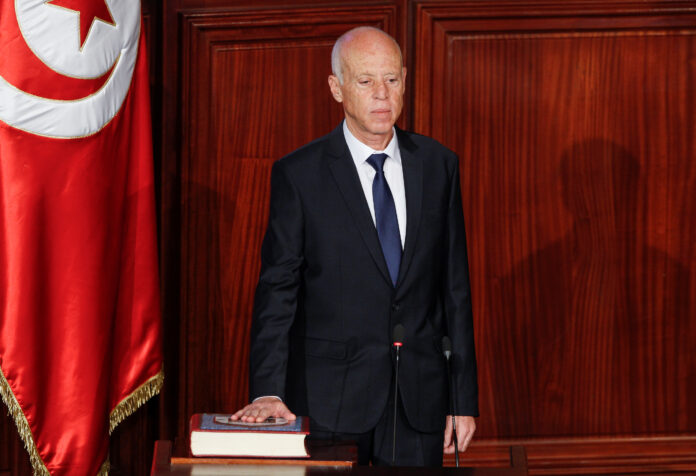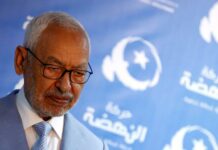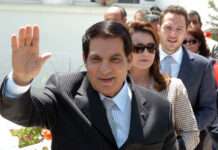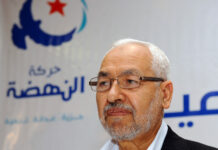
1959 Constitution and Presidential Rule
The Tunisian political system changed on July 25, 1957, when deputies of the then National Constituent Assembly voted unanimously to abolish the monarchy and declare the republic.
In 1959, a constitution was established that broke off with the monarchy and established a new political system. When this constitution came into force, the system of government in Tunisia took a new direction, in which the President of the Republic seized power.
From the establishment of the 1959 constitution until the end of 2011, the government in Tunisia was administered by a presidential political system in which the equilibrium characteristic of powers was not respected and in which the executive authority dominated over other authorities.
The 1959 constitution stipulated the necessity of choosing a republican presidential system so that responsibilities would not be dispersed and influence would not be distributed.
The strong executive authority throughout those years was an original guarantee for the freedom of individuals, a guarantee of order and security, preventing chaos and linking the popular will to the Free Constitutional Party and the national liberation movement.
One of the most prominent factors that helped the emergence of the presidential system in Tunisia is that the country’s priorities are economic development, not democracy and individual rights, and that state building or reform requires a strong executive authority.
The presidential system embodied both the former presidents of the republic, Habib Bourguia and Zine El Abidine Ben Ali, as they enjoyed direct electoral legitimacy and a parliamentary majority loyal to them and at their disposal, a system in which there was no balance between powers and slipped towards a hierarchical relationship between the authorities and the rest of the authorities became just a shadow of power during their tenure in power.
Throughout the Bourguiba and Ben Ali eras, the President of the Republic was the centerpiece of the Tunisian political system. This political system slipped into dictatorship, which was evident in many manifestations, the most important of which was the absence of free elections and the absence of an independent judiciary, as well as violations of rights and freedoms.
The constitutional revisions that took place during the rule of Zine El Abidine Ben Ali did not change the political system, nor did they limit the authority of the President of the Republic. The presidential system remained in place in the country until 2011, when the 1959 Constitution was suspended.
A Change in the System
In 2011, a National Constituent Assembly was elected to draft a new constitution to end decades of presidential rule, amid disagreements over the nature of the political system between those who favor a parliamentary system and those who prefer a presidential or other system.
In 2014, a new constitution was completed. This constitution establishes a modified parliamentary system or the so-called quasi-parliamentary or mixed system that breaks with the concept of concentration of government and establishes cooperation and integration.
After the revolution of January 14, 2011, Tunisia adopted a mixed political system based on a balance between legislative, executive and judicial powers, after the drafting of the 2014 constitution that breaks with the presidential system that centralizes power in the hands of the President of the Republic and grants broad executive powers to the Prime Minister.
The political system adopted in Tunisia grants Parliament the powers of legislation and oversight, granting confidence to the government, withdrawing it from it, and oversight over its work. The presidency of the government has also been given most of the executive powers, and the president of the republic has exclusive jurisdiction in three areas, namely national security, defense and foreign relations.
One of the most prominent characteristics of this political system is the direct election of the President of the Republic by the people and his enjoyment of important powers.
In this system, the government is politically responsible to and in solidarity with Parliament.
Another characteristic of the political system in Tunisia after the creation of the 2014 constitution is that the president of the republic has the right to dissolve parliament, heads the cabinet, appoints and dismisses the prime minister, and addresses parliament. He also has the right to take the legislative initiative and accredit ambassadors.
Failed Power Battle
Under the 2014 constitution, the executive authority has two heads: the president of the republic and the head of government, each with powers defined by the constitution.
The political system in Tunisia is characterized by a balance of legitimacy, as the President of the Republic has the power to dissolve the Assembly of the Representatives of the People in certain cases, the most important of which is the passage of 4 months since the first assignment. The people’s representatives renew their confidence in it at the request of the President of the Republic in accordance with the provisions of Articles 89 and 98 of the Constitution.
In the current political system, it is also possible for the President of the Republic to dissolve Parliament in the event that a government has not been formed or has not been granted confidence after one month from assigning the President of the Republic to the most capable person as a result of the Parliament’s failure to renew its confidence in the government at the request of the President of the Republic.
In return, the Assembly of the Representatives of the People can relieve the President of the Republic by providing 50 percent plus 1.
The President of the Republic is responsible for representing the state and controlling public policies in the fields of defense, foreign relations and national security. He makes appointments to military, diplomatic, and national security posts. He has the right to dissolve parliament during some crises.
As for the prime minister, he appoints ministers, relieves them of their duties, and is responsible for setting the general policy of the state and issuing orders, in addition to creating, amending and removing ministries and state secretaries, and making appointments to senior civil positions.
We can consider that the characteristics of the political system in Tunisia take into account the results of the electoral benefits, especially the extent to which the President of the Republic is linked to the first party in the Assembly of the People’s Representatives, so that the system in the country can be transformed into a semi-presidential system if the President of the Republic is a candidate for the first winning party in the legislative elections. It can be quasi-parliamentary if the President of the Republic is not affiliated with the first party in the legislative elections.
Tunisia’s crisis is no longer just a race and strife over the acquisition of power through electoral benefits. Rather, the political debate between the country’s ruling leaders has entered a new phase in which they are quarreling over the powers granted to the executive and the legislature.
The battle between them is based on the nature of the country’s political system, between those who defend the mixed system, or the so-called quasi-parliamentary, and those who see it as a failure and push for the need to change it to a presidential system.
In the midst of the divergence and the total difference between the choices of President Kais Saied and the Ennahda movement, “the first party in parliament”, the obsession with sharing power is no longer the focus of the political disputes in the country, and the general trends of both parties related to the nature of the political system have become the focus of the conflict between them.
The intensity of the conflict between the two poles of government in the country has reached the point of the President of the Republic’s proposal to suspend the implementation of the 2014 constitution in exchange for activating the updated constitution in 1959, which establishes a presidential system in which powers vary between the executive and legislative branches.
Towards the Visions of Kais Saied
Because the 1959 constitution establishes a presidential system that grants the President of the Republic wide powers that make him the center of government, it seems that the strength of the electoral legitimacy of Kais Saied, more than 3 million voters, tempted him and opened his appetite to possess more powers and to strengthen his influence in return for weakening the influence of the legislative authority, which is composed of parties that Said considers an unsuccessful political structure.
The desires of Kais Saied have been supported and defended by some of the opposition parties, who were apprehensive about the re-production of the same ruling class during the electoral elections, and the stability of Ennahda in power, and perhaps for fear of Abir Moussi’s rise to the first rank in the legislative authority.
Today, after the decisions of July 25, 2021, the door is open for Kais Saied to hold a popular referendum in which he may mix papers and obtain popular recommendation to change the political system from a mixed one to a presidential system in which the power of parliamentary parties is limited, limited to observation and suggestion.
Kais Saied may take advantage of the decisions to freeze parliament and hold some of his deputies accountable, to achieve gains of a political nature that translate everything he stated during his election campaign and adopt council democracy that weakens the role of parties.
What is Kais Saied’s Council Democracy?
Saied’s thought is based on Not relying on the parties and the central government to provide solutions and proposals. Rather, the youth, workers, and lower social groups are required to propose and submit projects in a form of popular democracy.
After entering the Carthage Palace, constitutional law professor Kais Saied did not abandon his position on the method of voting and the quasi-parliamentary system of government in which the House of Representatives enjoys wide powers, starting with the parliamentary majority’s selection of the prime minister to grant him confidence.
In June 2021, Kais Saied announced his intention to introduce amendments to the electoral law and reforms to the current constitution, to overcome the political crisis in the country.
Kais Saied insists on the necessity of introducing political reforms to the approved method of voting, which he considers to have led to division and disruption of the normal functioning of the state’s wheels.
Saied prefers that the voting method in the upcoming legislative elections is to vote on individuals in local districts.
Kais Saied’s statements related to voting for individuals instead of party or independent lists explain his vision of council democracy that opposes democratic centralism and establishes regional and workers’ councils that present proposals and projects with a decentralized social elevator that goes from the bottom to the top with the need to abandon the party system that he considers deferred dictatorship projects, especially that he stressed in many times that he will not establish a political party, and that the parties that adopt his ideas do not represent him, considering that the parties will disappear after a decade or two.










